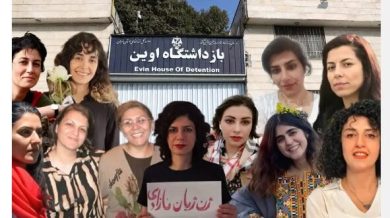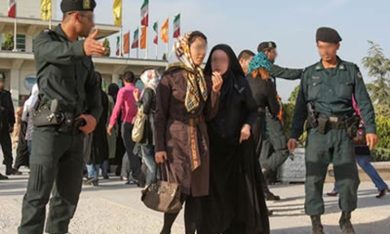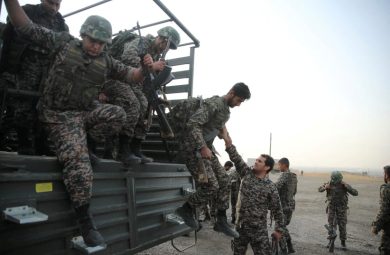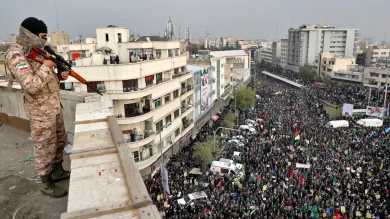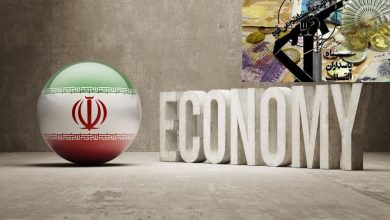The Islamic Revolutionary Guard Corps (IRGC) is not only a military entity but also an economic powerhouse that controls vast financial networks in Iran and beyond. Through its involvement in industries like oil, construction, telecommunications, and smuggling, the IRGC generates billions of dollars annually. These funds enable it to suppress dissent at home, fund proxy wars in the Middle East, and engage in activities that destabilize global security. In response, the international community, led by the United States and its allies, has implemented targeted sanctions to disrupt the IRGC’s financial networks and curtail its influence.
This report examines the IRGC’s financial networks, the role of sanctions in targeting them, and the broader implications for Iran’s economy, regional stability, and global security.
1. The Scope of the IRGC’s Financial Empire
A. Strategic Control Over Iran’s Economy
• The IRGC controls major sectors of Iran’s economy, including oil, construction, and telecommunications, through front companies and state contracts.
• Khatam al-Anbiya Construction Headquarters, the IRGC’s economic arm, is Iran’s largest engineering and development firm, undertaking massive infrastructure projects.
B. Revenue Streams
1. Oil and Gas Revenues:
• The IRGC profits from Iran’s oil exports, often using clandestine methods to evade sanctions.
• It engages in smuggling operations to sell oil on black markets, generating significant income.
2. Smuggling Networks:
• The IRGC controls border crossings and ports, facilitating the smuggling of fuel, narcotics, and luxury goods.
• These operations help circumvent sanctions and generate illicit income.
3. Illicit Trade and Front Companies:
• IRGC-affiliated companies operate domestically and internationally, using shell corporations to obscure financial transactions.
• These companies launder money and secure resources for the IRGC’s military and political operations.
2. Objectives of Sanctions Against the IRGC
A. Disrupting Financial Networks
• Sanctions aim to dismantle the IRGC’s ability to fund its operations by targeting its key revenue streams, financial institutions, and affiliated companies.
B. Reducing Regional Destabilization
• By limiting the IRGC’s financial resources, sanctions aim to weaken its support for proxy groups like Hezbollah, Hamas, and the Houthis.
C. Applying Pressure on Iran’s Regime
• Targeted sanctions are part of broader efforts to pressure the Iranian regime to change its policies on nuclear development, human rights, and regional aggression.
3. Key Sanctions Targeting the IRGC
A. U.S. Sanctions
1. Executive Orders:
• Executive Order 13224 (2001) designated the IRGC-Quds Force as a supporter of terrorism.
• Executive Order 13876 (2019) expanded sanctions on the IRGC, targeting its leadership and financial affiliates.
2. Designating the IRGC as a Terrorist Organization:
• In 2019, the U.S. designated the IRGC as a Foreign Terrorist Organization (FTO), imposing additional financial and travel restrictions.
3. Sectoral Sanctions:
• U.S. sanctions target Iran’s oil, banking, and transportation sectors, all of which are heavily influenced by the IRGC.
B. United Nations Sanctions
• UN Security Council Resolutions 1747 and 1929 imposed arms embargoes and financial restrictions on IRGC-linked entities involved in Iran’s nuclear program.
C. European Union Sanctions
• The EU has imposed asset freezes and travel bans on IRGC officials and entities involved in regional destabilization and human rights abuses.
4. Methods of Targeting IRGC Financial Networks
A. Identifying Front Companies
• Sanctions lists often include IRGC-affiliated companies, such as those operating under Khatam al-Anbiya or other subsidiaries.
B. Targeting Financial Institutions
• Sanctions on Iranian banks, including the Central Bank of Iran, aim to disrupt the IRGC’s access to international financial systems.
• Swift payment system bans have further isolated IRGC-linked entities.
C. Restricting Oil Exports
• Limiting Iran’s ability to export oil cuts off a critical revenue stream for the IRGC.
• Measures include tracking and seizing tankers involved in illegal oil shipments.
D. Cracking Down on Money Laundering
• International efforts focus on uncovering and dismantling money-laundering schemes used to fund IRGC operations.
5. Impact of Sanctions on the IRGC and Iran
A. Financial Strain
• Sanctions have reduced the IRGC’s access to foreign currency and limited its ability to fund proxy wars and domestic repression.
• Restricted oil revenues have forced the IRGC to rely more heavily on illicit activities.
B. Economic Consequences for Iran
• The IRGC’s control over key sectors means that sanctions targeting its networks often exacerbate Iran’s economic challenges, impacting ordinary citizens.
• Inflation, unemployment, and currency devaluation are among the indirect consequences.
C. Adaptation and Evasion
• Despite sanctions, the IRGC has developed methods to adapt, such as using cryptocurrency, establishing new front companies, and partnering with non-compliant states.
6. Challenges in Enforcing Sanctions
A. Identifying Hidden Networks
• The IRGC uses complex networks of front companies, making it difficult to track and target its financial activities.
B. Global Compliance Issues
• Some countries and entities continue to engage with IRGC-affiliated companies, undermining the effectiveness of sanctions.
C. Humanitarian Concerns
• Broad sanctions risk harming Iranian civilians by restricting access to essential goods and services.
7. Recommendations for Strengthening Sanctions
A. Enhance Intelligence Sharing
• International cooperation is essential for identifying and dismantling IRGC-affiliated financial networks.
B. Strengthen Enforcement Mechanisms
• Improve monitoring and compliance to ensure that sanctions are effectively implemented and enforced globally.
C. Protect Humanitarian Trade
• Implement safeguards to ensure sanctions do not impede the delivery of food, medicine, and humanitarian aid to the Iranian people.
D. Target Cryptocurrency Networks
• Address the IRGC’s use of cryptocurrency for sanctions evasion by monitoring blockchain transactions and collaborating with tech firms.
Conclusion
Sanctions targeting the IRGC’s financial networks are a critical tool for curbing its destabilizing activities and regional aggression. While sanctions have disrupted some of its revenue streams, the IRGC continues to adapt, necessitating ongoing international vigilance and cooperation. Strengthened enforcement, combined with targeted measures that minimize harm to civilians, can weaken the IRGC’s grip on Iran’s economy and reduce its capacity to fund terrorism and repression. Through coordinated global efforts, the IRGC’s financial empire can be effectively dismantled, promoting greater stability and security in the Middle East and beyond.
Join Our Newsletter!
Stay informed with the latest updates, news, and ways to take action in the fight for justice and global security. Sign up now to get updates delivered straight to your inbox!

